Abstract
What makes Jehovah's Witnesses tick? What motivates practitioners of medicine? How is benevolent human behaviour to be interpreted? The explanation that fear of censure, mind-control techniques or enlightened self-interest are the real motivators of human conduct is questioned. Those who believe that man was created in "God's image", hold that humanity has the potential to rise above selfishly driven attitudes and actions, and reflect the qualities of love, kindness and justice that separate us from the beasts. A comparison of general medical ethics and disciplines, and those of the Jehovah's Witness community, is made in this context. The easy charge that frequent deaths result from refusal of blood transfusions is examined. The central source of antipathy towards Jehovah's Witnesses, namely the alleged imposition of extreme and even harmful refusal of blood therapy on our children is addressed. Of course, "...few dilemmas are likely to be resolved wisely or satisfactorily by a blinkered adherence to abstract principles alone. Solutions to most cases will be dictated by a combination of factors. The support of medical ethics by Jehovah's Witnesses, and their willingness to share in reasoned and ethical debate, while at the same time holding firm to their religious and conscientious principles are emphasised.
Full text
PDF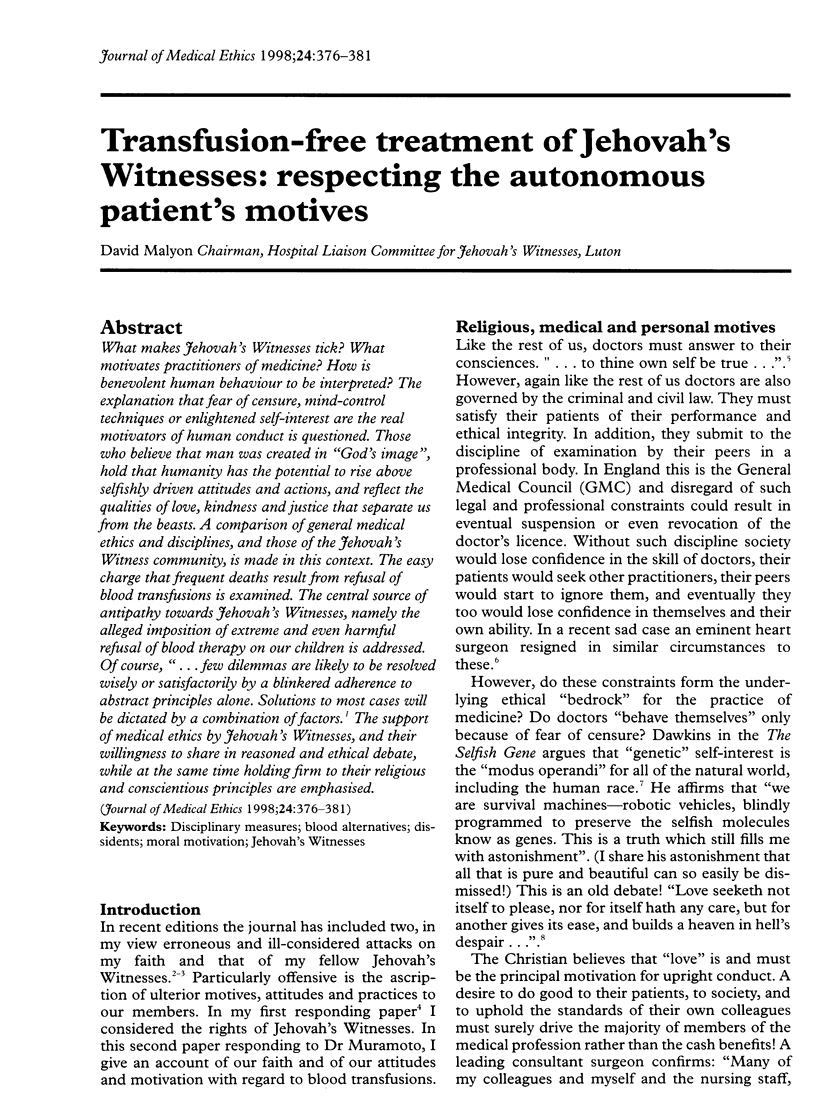
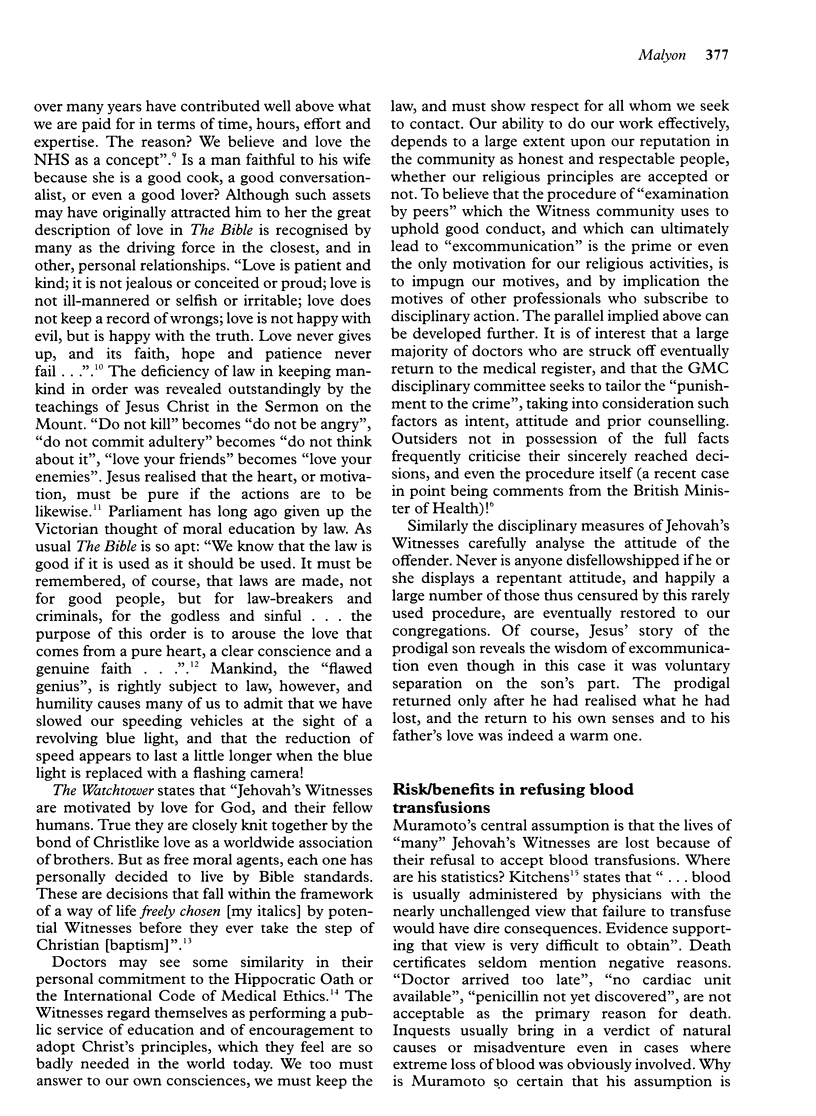
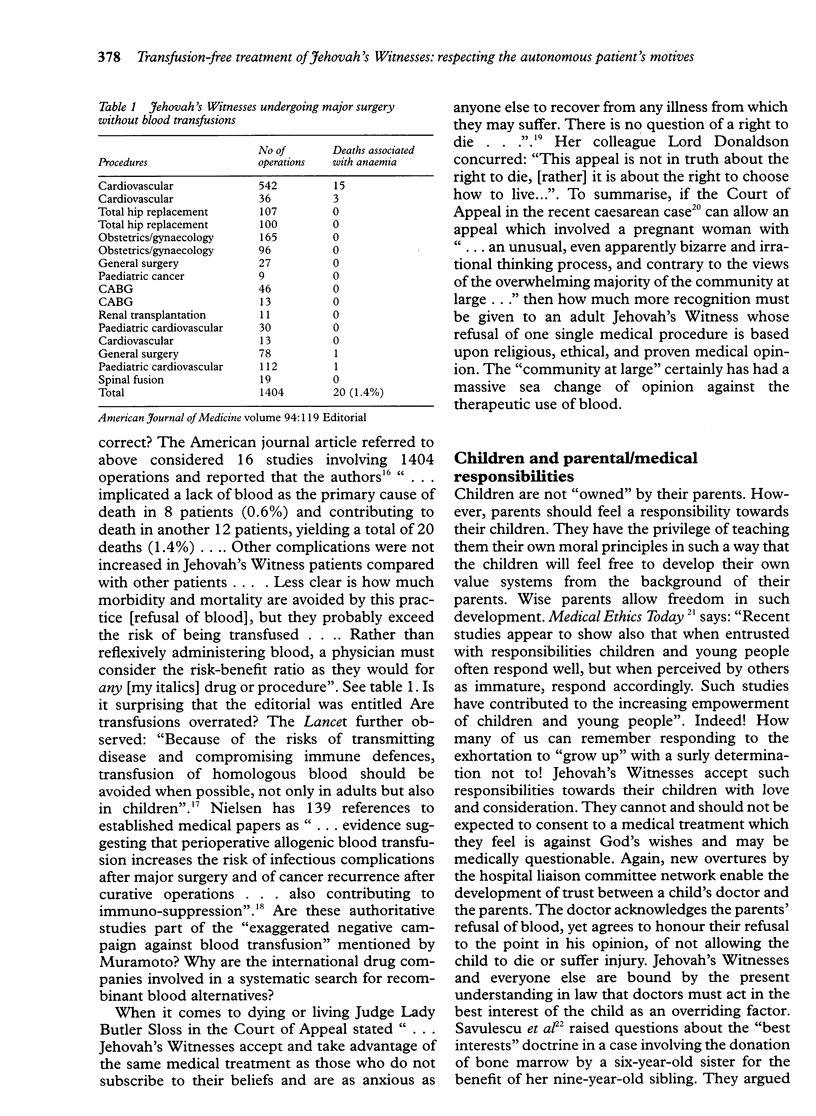
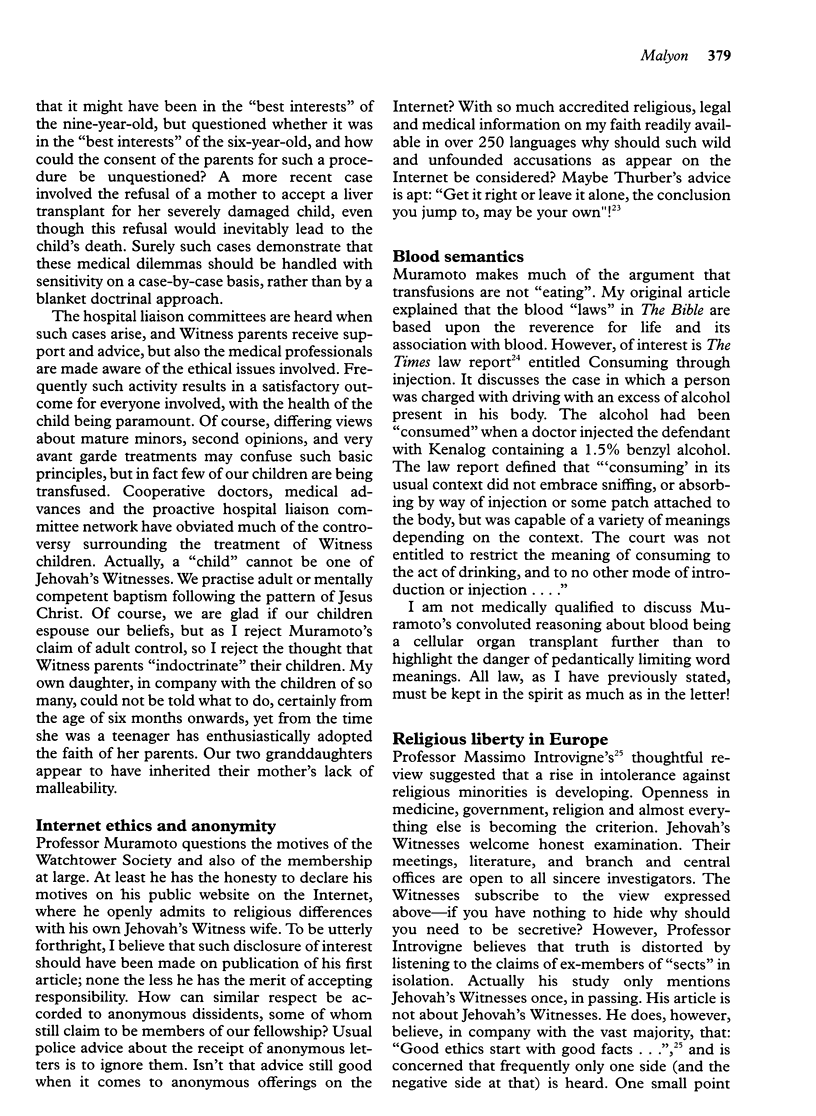
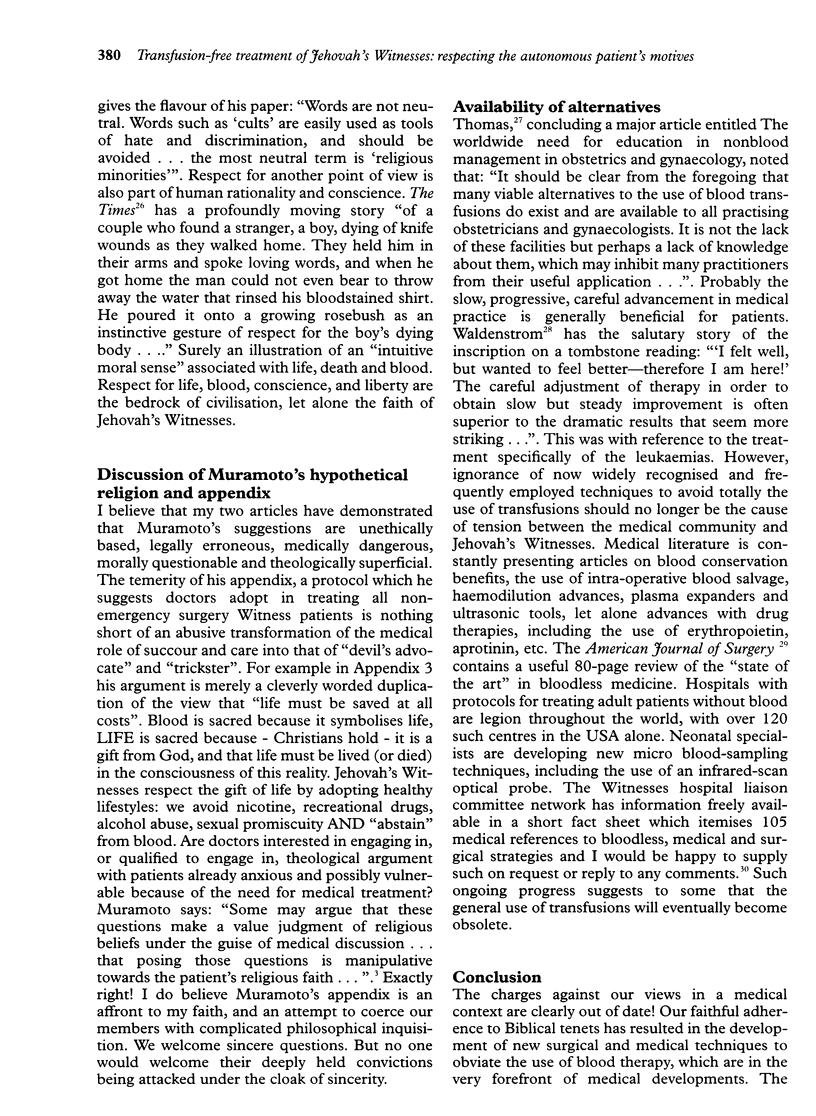
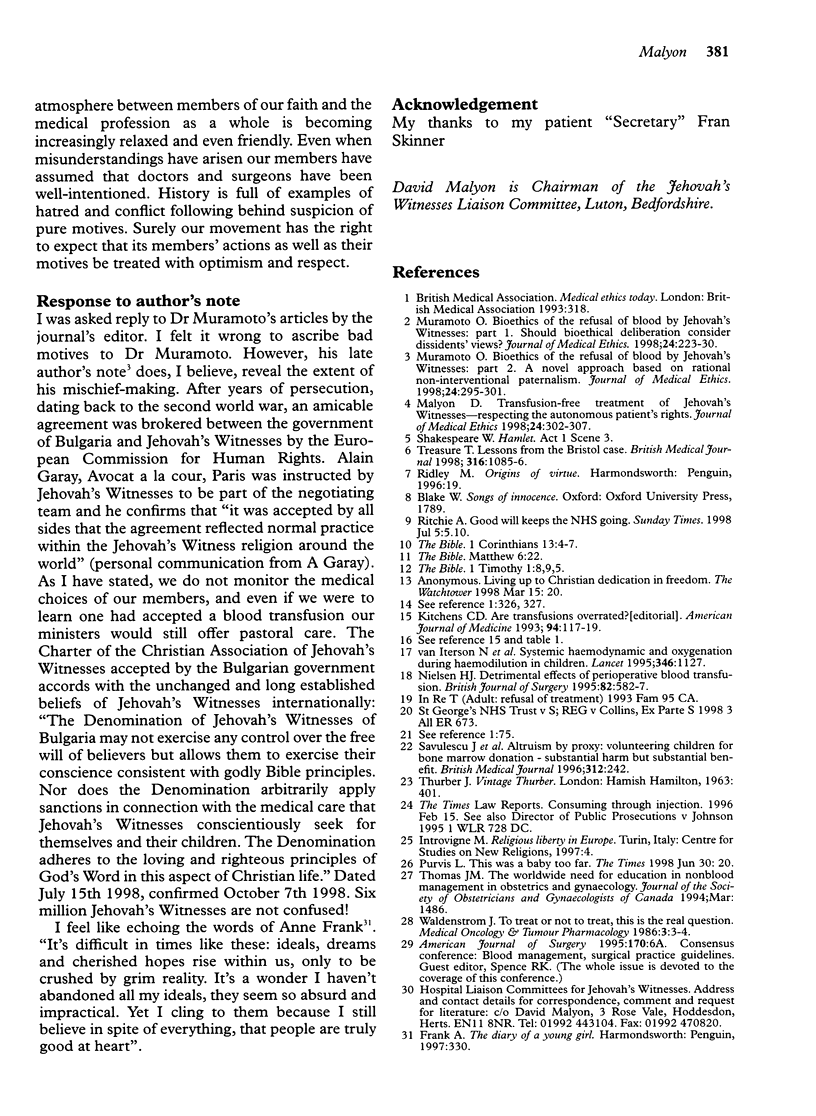
Selected References
These references are in PubMed. This may not be the complete list of references from this article.
- Malyon D. Transfusion-free treatment of Jehovah's Witnesses: respecting the autonomous patient's rights. J Med Ethics. 1998 Oct;24(5):302–307. doi: 10.1136/jme.24.5.302. [DOI] [PMC free article] [PubMed] [Google Scholar]
- Muramoto O. Bioethics of the refusal of blood by Jehovah's Witnesses: Part 1. Should bioethical deliberation consider dissidents' views? J Med Ethics. 1998 Aug;24(4):223–230. doi: 10.1136/jme.24.4.223. [DOI] [PMC free article] [PubMed] [Google Scholar]
- Muramoto O. Bioethics of the refusal of blood by Jehovah's Witnesses: Part 2. A novel approach based on rational non-interventional paternalism. J Med Ethics. 1998 Oct;24(5):295–301. doi: 10.1136/jme.24.5.295. [DOI] [PMC free article] [PubMed] [Google Scholar]
- Nielsen H. J. Detrimental effects of perioperative blood transfusion. Br J Surg. 1995 May;82(5):582–587. doi: 10.1002/bjs.1800820505. [DOI] [PubMed] [Google Scholar]
- van Iterson M., van der Waart F. J., Erdmann W., Trouwborst A. Systemic haemodynamics and oxygenation during haemodilution in children. Lancet. 1995 Oct 28;346(8983):1127–1129. doi: 10.1016/s0140-6736(95)91800-0. [DOI] [PubMed] [Google Scholar]


